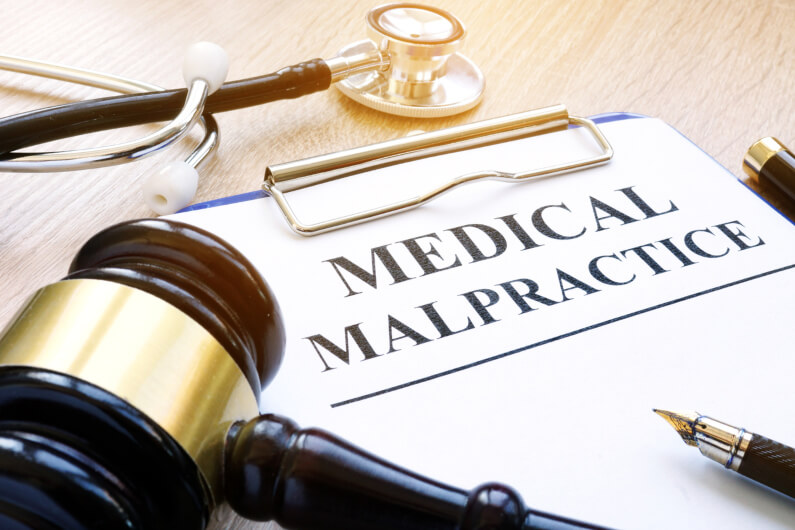Though healthcare professionals in Pennsylvania — and the USA at-large — are generally hard-working and caring individuals, there are exceptions. Further, even well-meaning healthcare professionals may fail to adhere to the standards of care required of those in their position. When healthcare professionals fail in their duty to their patients (whether they intended to cause injury or not), they can be found liable for the injuries they cause or otherwise exacerbate. Injury claims brought on this basis are known as medical malpractice claims. In the medical malpractice context, a healthcare professional in Bethlehem or anywhere else in the state of Pennsylvania may be found liable for medical negligence in a range of circumstances, potentially entitling the victim (you, the plaintiff) to economic and non-economic damages. The critical first step is to have a skilled Bethlehem medical negligence lawyer evaluate your claim.

Common Types of Medical Negligence Explained by Our Bethlehem Medical Negligence Lawyer
Medical negligence is a serious matter that can have life-changing consequences. For example, a botched surgery in Bethlehem can lead to a systemwide infection that threatens a patient’s organ systems and could lead to serious internal damage, or even death. A routine spinal tap procedure — is conducted without the requisite precautionary measures — could lead to paralysis. Medical negligence often occurs in contexts where the victim has already been placed in a weakened, vulnerable state, increasing the likelihood of significant, potentially catastrophic injury.
Just as in other contexts, the potential for negligence in the healthcare context is extremely varied. Wherever a decision has to be made or a procedure has to be executed, there is room for medical negligence.
Common acts of medical negligence include, but are not limited, to:
- Failure to properly investigate the patient’s medical history
- Sanitation issues
- Intoxication in the workplace
- Involvement in procedures, diagnostics, or treatment for which the professional is not adequately trained or experienced
- Errors in the surgical context
- Improper patient placement such that the patient is exposed to infection
- Errors in the administration of routine procedures
- Failure to provide proper instructions to the patient (for example, with regard to prescription drug instructions)
- Provision of medical device that is defective
- Provision of medical device that has a clearly superior alternative
- Failure to properly monitor the patient
- Delayed diagnosis
- Misdiagnosis
When Does a Mistake Become Negligence?
In Bethlehem and throughout Pennsylvania, you can hold a healthcare professional liable for medical negligence (and reckless or intentional behavior), but you cannot recover damages for the reasonable mistakes of a healthcare professional. The difference between a mistake and negligence can be difficult to understand, but at a fundamental level, the difference is based on whether the standard of care has been violated.
Every healthcare professional is held to a professional standard of care. The standard of care is a set of duties and expectations (which varies depending on the specialty and training of the professional, the location, the patient’s condition, and more). For example, the standard of care for an emergency room nurse generally includes competent administration of injections and competently hooking a patient up to an IV. If an emergency room nurse fails to properly hook the patient up to an IV, and subsequently fails to check in on the patient to ensure that everything is going smoothly, then the patient could be exposed to serious injury risk. The nurse could be held liable for medical negligence, as their “mistake” would qualify as a violation of the professional standard of care.
Damages for Medical Malpractice and Negligence
In the context of medical malpractice, you can claim any damages that you suffered as a result of the negligent, reckless, or intentional acts of a treating medical professional. Fortunately, the state of Pennsylvania — unlike many other states — does not impose any economic or non-economic damage caps on medical malpractice recovery. This not only increases the potential ceiling for recovery but also raises the floor for settlement negotiations, which creates a substantially more favorable environment for medical malpractice claimants overall.
Economic and non-economic damages available to medical malpractice claimants in Bethlehem and elsewhere throughout the state include, but are not necessarily limited, to:
- Pain and suffering
- Emotional distress
- Medical expenses (for new injuries or exacerbated injuries suffered as a result of the purported medical malpractice)
- Wage loss
- Loss of future earning capacity
In some cases, the court may consider an award of punitive damages. Punitive damages are rather uncommon, but are sometimes awarded in cases where the conduct of the defendant is particularly egregious — fundamentally, punitive damages are meant to “punish” the defendant for their conduct and discourage others in society from such behavior. Punitive damages are awarded based on the existing compensatory damages amount. Pennsylvania limits the total punitive damages award to three times the compensatory damages. For example, if you are entitled to recover $200,000 for your various losses, the punitive damages award could run as high as $600,000.
Contact an Experienced Bethlehem Medical Negligence Lawyer Today
If you have suffered injuries (or have had existing injuries exacerbated) as the result of a medical professional’s negligence, Pennsylvania law may entitle you to recover damages to compensate you for your various injuries. Medical negligence claims can be quite difficult to litigate, however, and securing a favorable outcome requires the skillful advocacy of experienced medical negligence attorneys.
Call (888) 777-7098 to schedule a free consultation with a Bethlehem medical negligence lawyer here at Drake, Hileman & Davis, PC. We have a history of success in litigating medical negligence claims and securing favorable outcomes. Medical negligence claims generally engage complex issues involving the professional standard of care, the evidence of negligence (or lack thereof), and more. Our attorneys will work with you to help you understand your claims and move forward with litigation.

